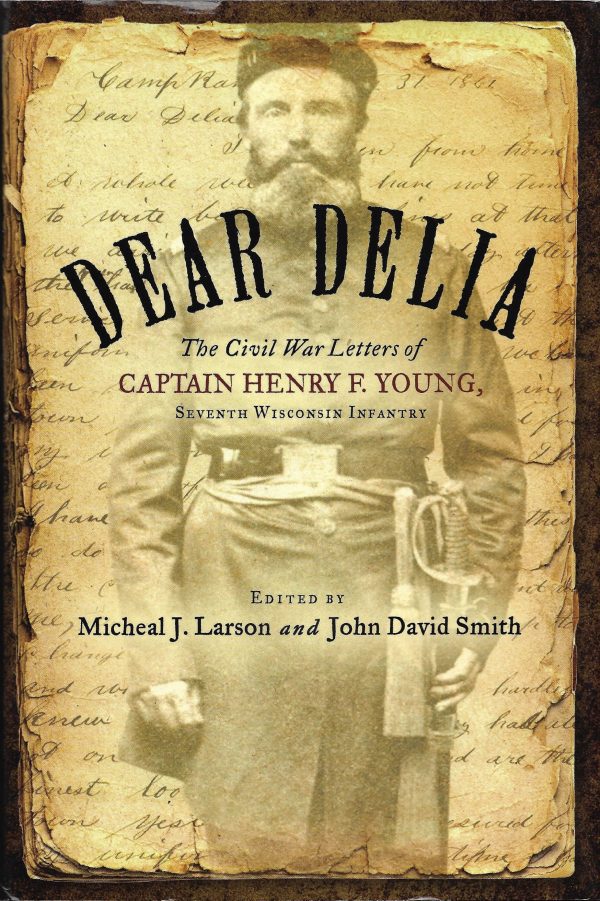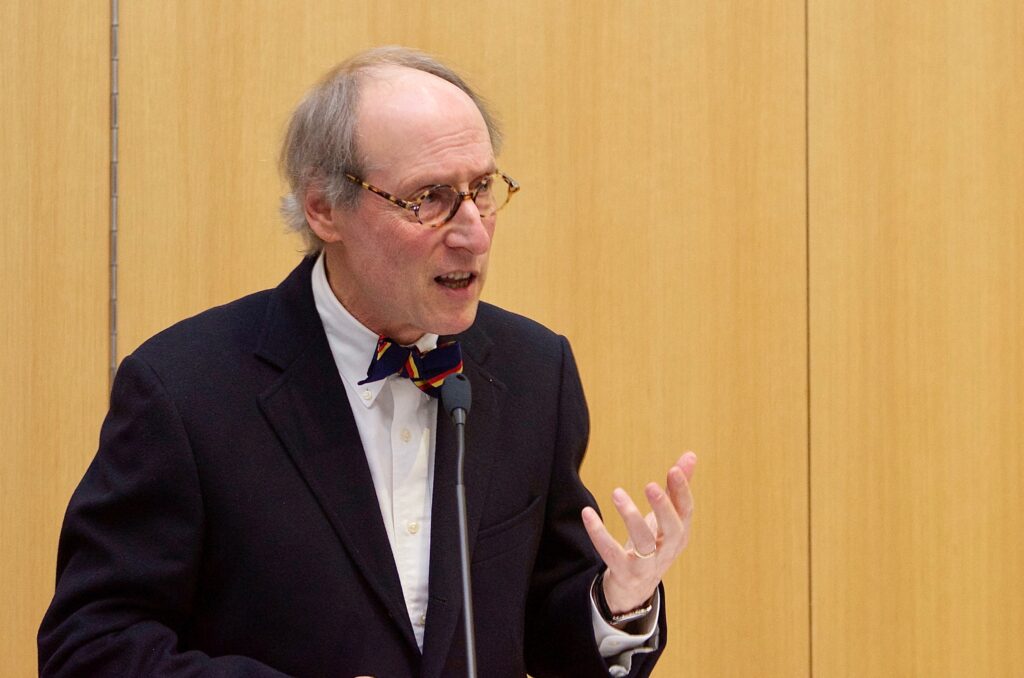Historian’s New Book Documents Life of Civil War Officer

In the summer of 1861, Henry F. Young left his Wisconsin home and beloved family to serve in the famed Iron Brigade during the American Civil War. While in service, the young Union officer wrote 155 letters home, sharing his astute and candid observations of military service, politics, patriotism, and race relations.
In the new book Dear Delia: The Civil War Letters of Captain Henry F. Young, Seventh Wisconsin Infantry, UNC Charlotte historian John David Smith and coauthor Micheal J. Larson have provided a deeper look at Young’s letters through their detailed research and annotations.
“This revealing collection of letters is one of the best windows one will ever find into the everyday reality and the horror of the Civil War. Larson and Smith illuminate this remarkable story; the letters themselves take us deep into Young’s values, honesty, racial views, contempt for slackers and civilians, and almost unfathomable determination to stay to the end to save the Union,” said reviewer David W. Blight, author of Frederick Douglass: Prophet of Freedom.
Young’s insights, often poignant and powerful, enable readers to witness the Civil War as he did. Young covers innumerable details of military service – from the camaraderie, pettiness, and thievery he witnessed among the troops, to the brutality of internecine war. From newspapers, he retained a firm grasp of Wisconsin and national politics, often noting incidents of graft and corruption and offering pointed opinions regarding the 1864 presidential election.
“Captain Young’s letters are perhaps the most incisive and comprehensive among the literally thousands of Civil War soldier letters I have read over the last four decades,” Smith said. “I was struck not only by his commitment to preserving the Union, but also by his constant concern for his wife Delia, his father-in-law Jared Warner, and his children in Wisconsin.”
Young’s correspondence provides an unsurpassed window into combat at the company level in the Iron Brigade, one of the Union Army’s most decorated, and decimated, military units, Smith said. They document how Young considered senior military commanders, President Abraham Lincoln’s leadership and emancipation.
“The correspondence also chronicles changing gender roles during the Civil War, as Delia assumed new economic roles and responsibilities on the Wisconsin home front, while the war tested her husband’s sense of honor, manhood, and patriotism,” Smith said. “In short, the letters contained in Dear Delia bring to life the uncommonly human concerns and insights of a hard-fighting junior officer from the Midwest during the war. They underscore the daily reality and horror of war unlike any other published collection of Civil War letters.”

Smith, who is the Charles H. Stone Distinguished Professor of American History at UNC Charlotte, joined Larson on the book project when editor Gwen Walker at The University of Wisconsin Press recommended that Stone’s expertise could help bring the book to life. With Dear Delia, Smith has published 30 books, many on the topic of the Civil War, and has edited collections of letters, diaries, and other primary works on the war, race relations, and southern history.
Larson originally uncovered Young’s correspondence stored at the Wisconsin Historical Society as an undergraduate student at the University of Wisconsin-Eau Claire in 1985. Decades later, now a history teacher at an Eau Claire high school, he returned to the letters, determined that they could form the foundation for a book.
“It would have been hard, in my opinion, for Dr. Walker to have found a better fit for this project,” Larson said. “Dr. Smith’s expertise and experience as a Civil War historian and an experienced editor made for a perfect fit. He was a great choice.”
Larson sees relevance of Young’s writings to today, particularly for those serving in the armed forces and their loved ones.
“His concern for family, his views on patriotism, nettlesome financial affairs, his training, his disdain towards Union leadership, and most importantly, his survival of the brutal horrors of the battlefield, make his letters relevant,” Larson said. “This book is intended for a broad audience, including historians and Civil War enthusiasts. As I tell my friends, family, colleagues, and students, Capt. Young was no different from who we are – the only thing that separated him from people today is time.”